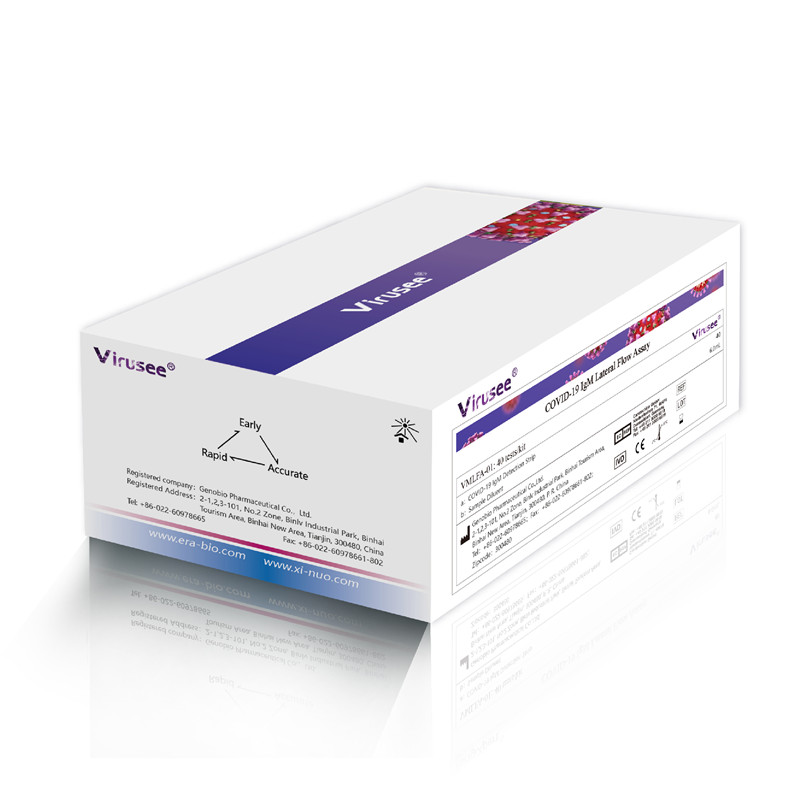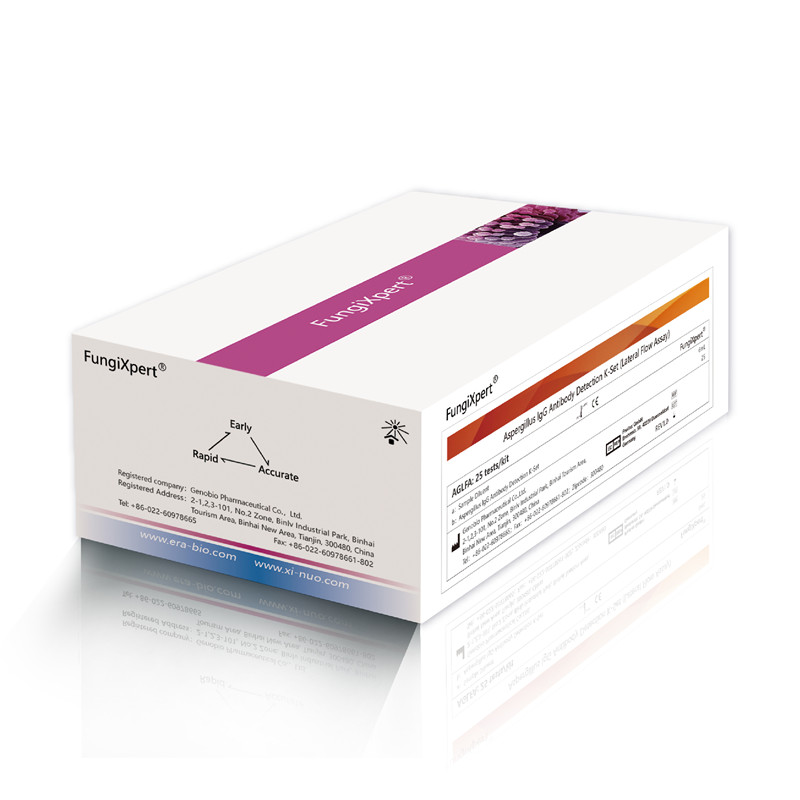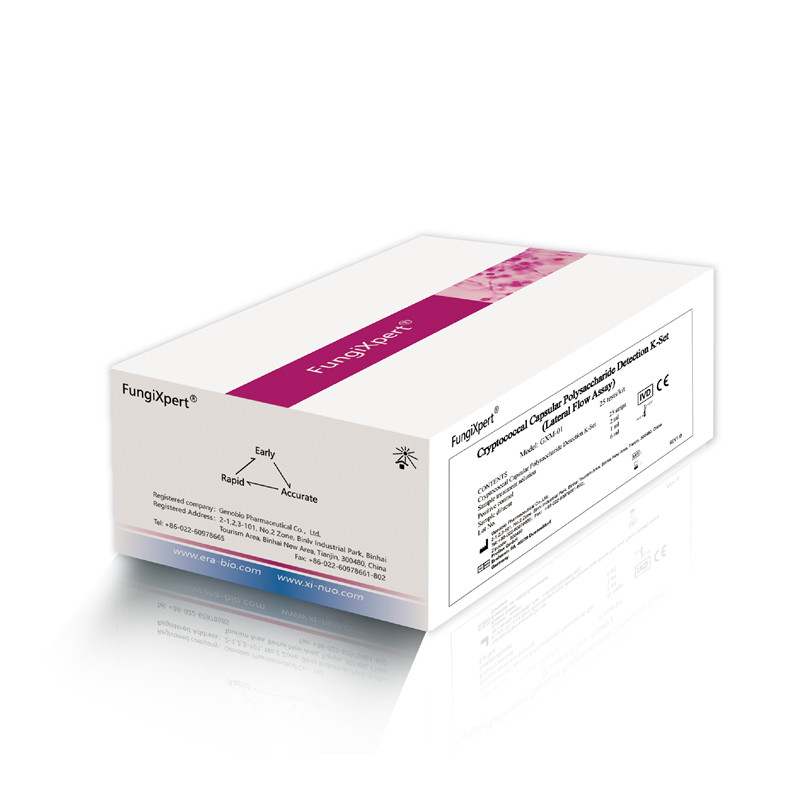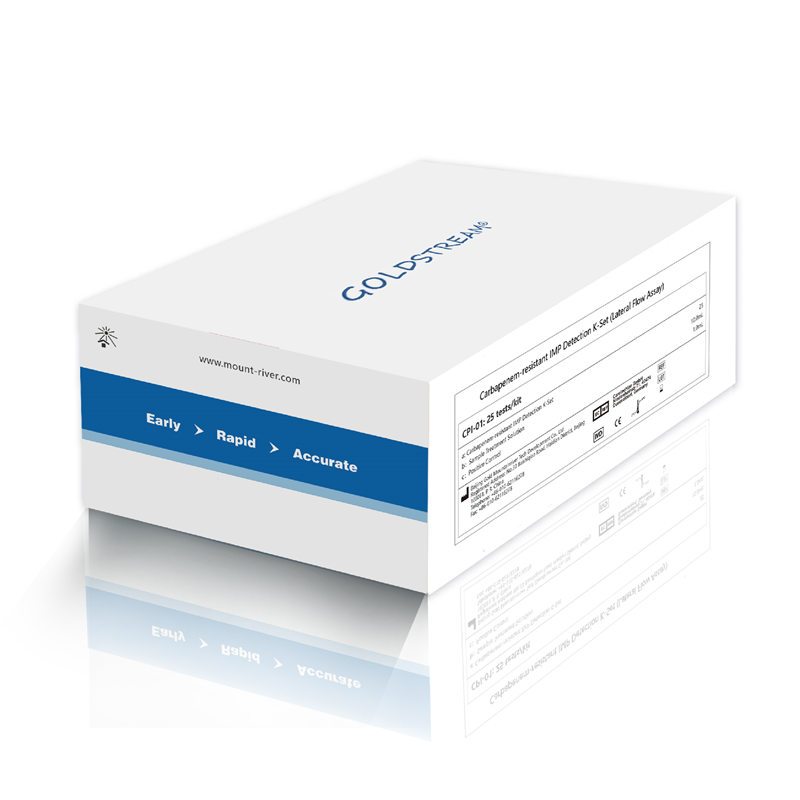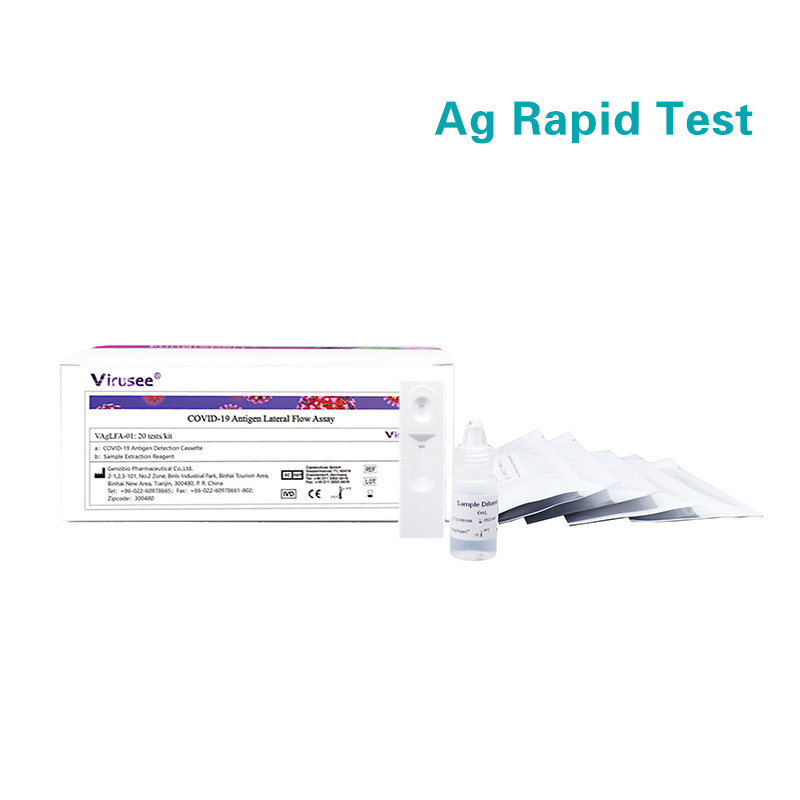Carbapenem-resistant KPC Detection K-Set (Lateral Flow Assay)
Product Introduction
The Carbapenem-resistant KPC Detection K-Set (Lateral Flow Assay) is an immunochromatographic test system intended for the qualitative detection of KPC-type carbapenemase in bacterial colonies. The assay is a prescription-use laboratory assay which can aid in the diagnosis of KPC-type carbapenem resistant strains.
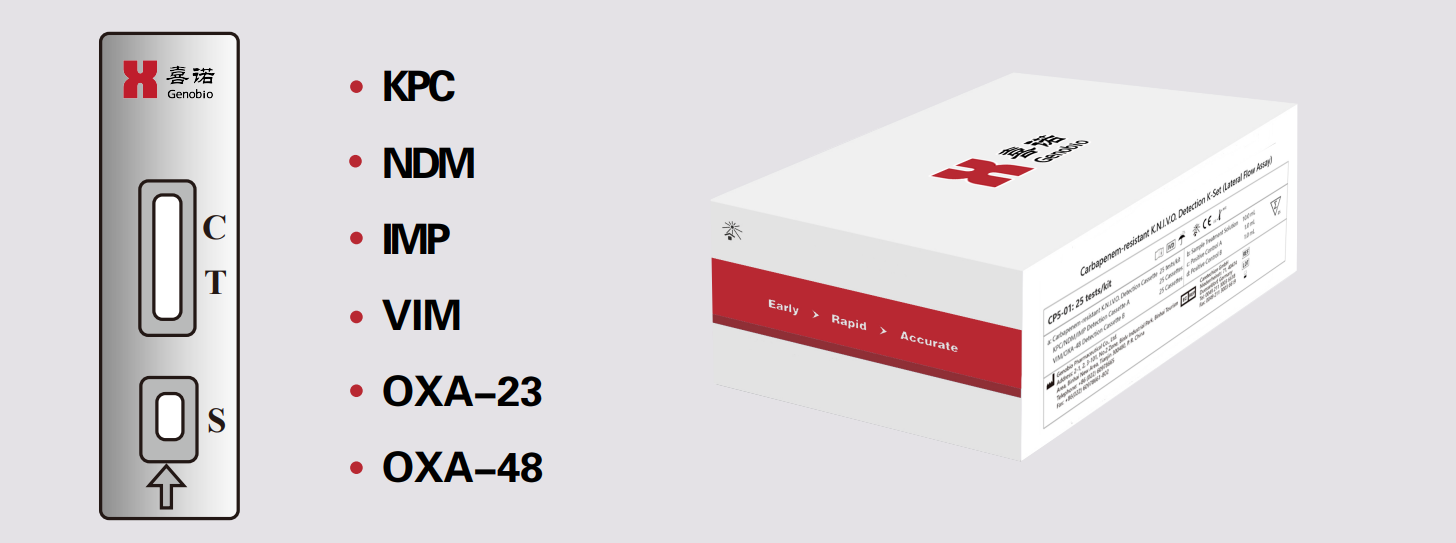
Characteristics
|
Name |
Carbapenem-resistant KPC Detection K-Set (Lateral Flow Assay) |
|
Method |
Lateral Flow Assay |
|
Sample type |
Bacterial colonies |
|
Specification |
25 tests/kit |
|
Detection time |
10-15 min |
|
Detection objects |
Carbapenem-resistant Enterobacteriaceae (CRE) |
|
Detection type |
KPC |
|
Stability |
The K-Set is stable for 2 years at 2°C-30°C |
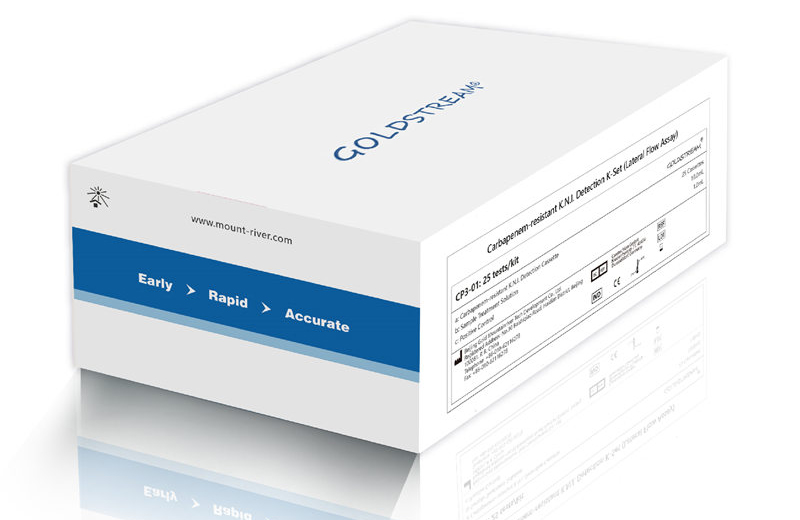
Advantage
- Rapid
Obtain result within 15 min, 3 days earlier than traditional detection methods - Simple
Ordinary laboratory staff can operate without training - Accurate
High sensitivity and specificity
Low detection limit: 0.50 ng/mL
Able to detect most of the common subtypes of KPC
- Intuitive result
Visual reading result, easy and clear - Economic
Product can be transported and stored at room temperature, reducing costs
The importance of CRE test
Carbapenem antibiotics are one of the most effective drugs for the clinical control of pathogenic infections. Carbapenemase-producing organisms (CPO) and carbapenem-resistant Enterobacter (CRE) have become a global public health issue due to their broad-spectrum drug resistance, and treatment options for patients are very limited. People worldwide should pay great attention on preventing the spread of CRE, which, if not limited, will seriously affect the clinical treatment of many diseases, making it increasingly difficult to cure and control diseases.
Usually, healthcare providers can help prevent the spread of CRE by
- Monitoring CRE infections carefully in healthcare facilities
- Isolate patients with CRE
- Removing medical devices that are inside the body, and reducing invasive treatment methods
- Be careful when prescribing antibiotics (especially carbapenems), only if it is really needed
- Using clean (sterile) techniques to minimize the spread of infection
……
All these indicate the importance of early detection of CRE. To develop rapid diagnostic products is of great significance for the early typing of drug-resistant strains, the guidance of medication, and the improvement of human’s medical and health standards.
KPC-type carbapenemase
Carbapenemase refers to a type of β-lactamase that can at least significantly hydrolyze imipenem or meropenem, including A, B, D three types of enzymes classified by Ambler molecular structure. Class A, such as KPC-type carbapenemase, have been detected primarily in Enterobacteriaceae bacteria. Klebsiella pneumoniae carbapenemase, briefed as KPC, has become one of the most important contemporary pathogens, while the optimal treatment remains undefined. Infections due to KPCs are associated with high therapeutic failure and mortality rates of at least 50%.
Operation
- Add 5 drops of sample treatment solution
- Dip bacterial colonies with a disposable inoculation loop
- Insert the loop into the tube
- Add 50 μL to the S well, wait for 10-15 minutes
- Read the result
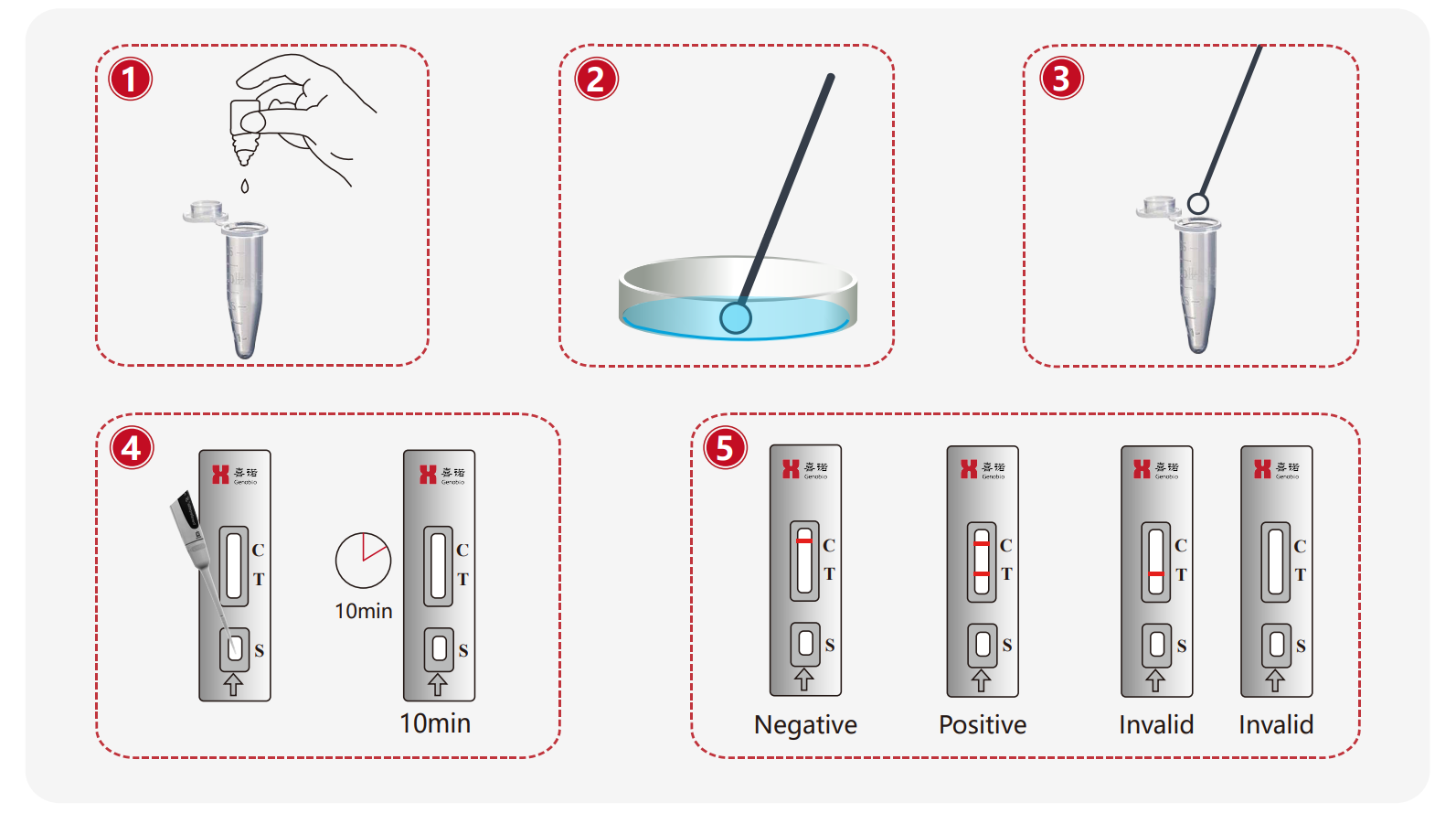
Order Information
|
Model |
Description |
Product code |
|
CPK-01 |
25 tests/kit |
CPK-01 |


